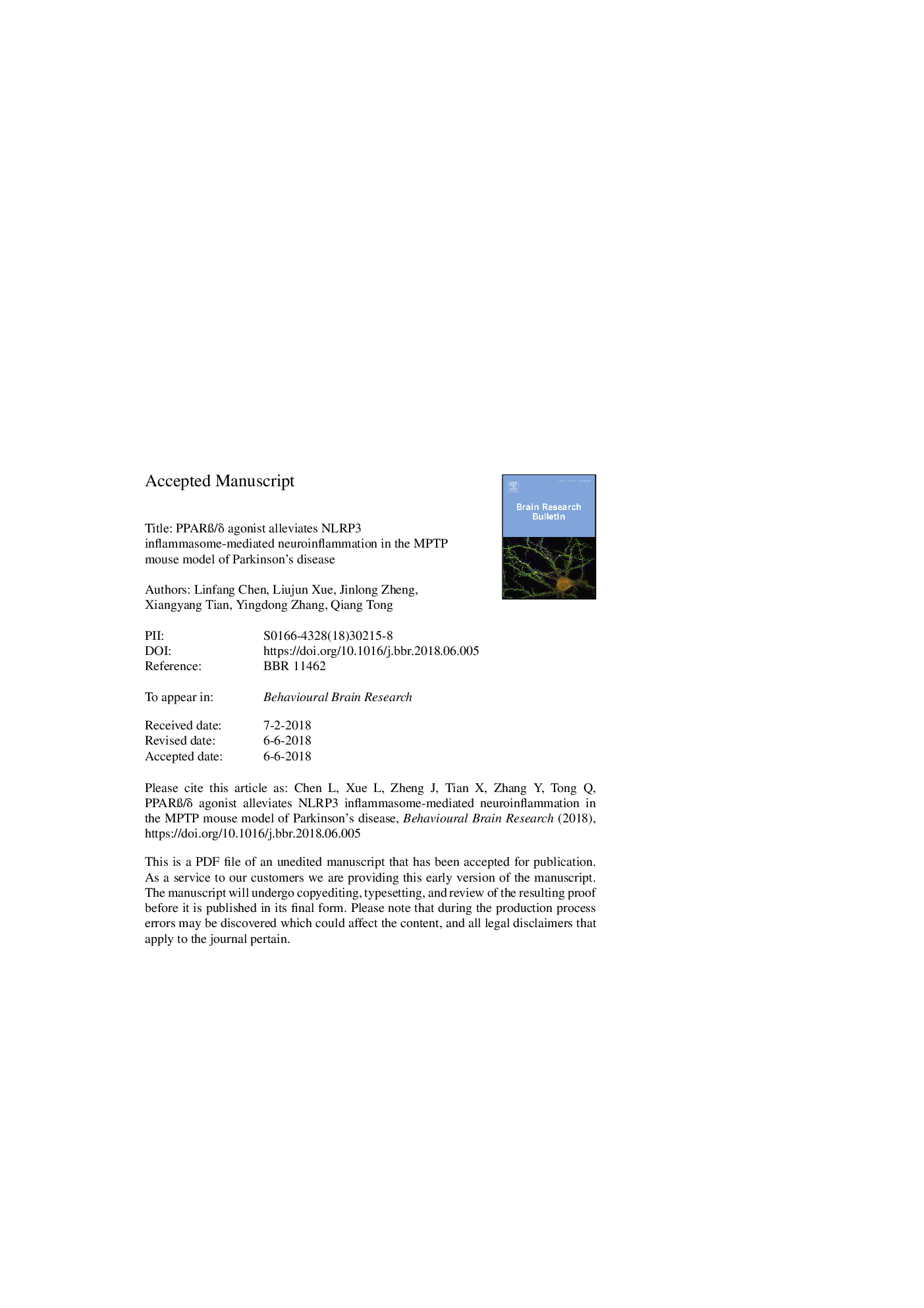| Article ID | Journal | Published Year | Pages | File Type |
|---|---|---|---|---|
| 11031788 | Behavioural Brain Research | 2019 | 31 Pages |
Abstract
Recent studies have indicated that peroxisome proliferator-activated receptor β/δ (PPARÃ/δ) agonists exert neuroprotective effects in the model of Parkinson's disease (PD). Furthermore, PPARÃ/δ agonists have been shown to have potential anti-inflammatory activity, but the underlying mechanisms remain obscure. Emerging evidence indicates that the nucleotide-binding domain and leucine-rich-repeat-protein 3 (NLRP3) inflammasome-mediated neuroinflammation plays a crucial role in the pathogenesis of PD. In the present study we investigate whether PPARÃ/δ agonists alleviate NLRP3-mediated neuroinflammation in the 1- methyl-4-phenyl-1, 2, 3, 6-tetrahydropyridine (MPTP) mouse model of PD. We administered GW501516, a selective and high-affinity PPARÃ/δ agonist, via intracerebroventricular infusion. Locomotor activities were tested by open field tests and the pole test. The levels of dopamine and its metabolites were determined using highperformance liquid chromatography.Dopaminergic neurodegeneration was assessed via Western blot analysis. The levels of oxidative stress were detected via spectrophotometric assays. The expressions of pro-inflammatory cytokines were measured by performing quantitative real-time RT-PCR and ELISA. Western blot analysis was used to assess NLRP3 inflammasome activation. Our results show that GW501516 reduced movement impairment in PD mice; furthermore, it attenuated dopaminergic neurodegeneration in the midbrain and the depletion of dopamine in the striatum and it inhibited inflammatory reactions and NLRP3 inflammasome activation in the midbrain of PD mice. More importantly, it attenuated astrocytic reaction but had no significant effect on microglial reaction in the midbrain of PD mice. Collectively, our ï¬ndings demonstrate for the first time that the specific PPARÃ/δ agonist GW501516 alleviates NLRP3 inflammasome-mediated neuroinflammation in astrocytes in the MPTP mouse model of PD.
Related Topics
Life Sciences
Neuroscience
Behavioral Neuroscience
Authors
Linfang Chen, Liujun Xue, Jinlong Zheng, Xiangyang Tian, Yingdong Zhang, Qiang Tong,
